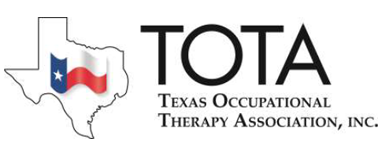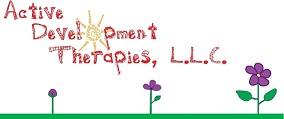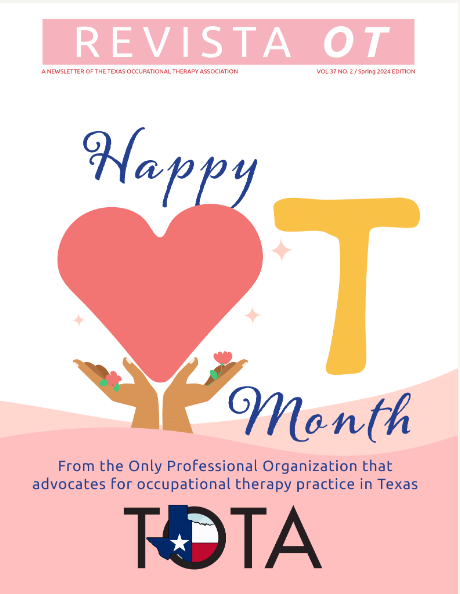|
TOTA Continuing Education Approval Program
The TOTA Continuing Education Approval Program (TOTA CEAP) authorizes continuing education providers to issue continuing education (CE) hours that are pre-approved by TOTA. The TOTA CEAP assures that the pre-approved continuing education courses offered are relevant to OT practitioners in the state of Texas and meet the standards for continuing education established for license renewal by the Texas Board of Occupational Therapy Examiners (TBOTE; Occupational Therapy Rules Chapter 367 Continuing Education). Continuing education providers who meet criteria and agree to adhere to the following program guidelines will receive the designation pre-approved by TOTA and have courses offered posted on the TOTA website prior to the course date if requested.
|
|||||||||||||||||||||||||||||||
|
0.1 – 3.0 hours |
$60.00 |
|
|
3.1 – 6.0 hours |
$90.00 |
|
|
6.1 – 9.0 hours |
$120.00 |
|
|
9.1 – 12.0 hours |
$135.00 |
|
|
12.1 – 15.0 hours |
$150.00 |
|
|
15.1 – 18.0 hours |
$170.00 |
|
|
18.1 hours or more |
$210.00 |
- Late Fee: A $50 late fee will be applied for a course submitted 30 days or less than the requested approval start date.
- Featured Course Fee (Optional): If requested, added to the course fees would be an additional $100 for a 30-day listing of $150 for a 60-day listing.
Important points to expedite course submission:
Evaluate and substantiate your request by asking the questions that reviewers consider:
- Does the schedule appropriately reflect the educational contact hours requested, excluding breaks and other non-instructional time?
- Are there any unidentified time frames or gaps in the schedule?
- Does the presenter’s CV demonstrate how they meet the criteria to be considered qualified to present the content of the course?
- Does the submission clearly reflect the course’s application of the content to occupational therapy practice in the course outline, objectives, and statement of relevance?
- Does this educational offering meet the Texas Board of Occupational Therapy Examiners (TBOTE) definition of continuing education as substantiated by the course outline/description and objectives? If the course does not meet the TBOTE definition of continuing education, the course should not be submitted.
Note: Per TBOTE CHAPTER 367 CONTINUING EDUCATION §367.1. Continuing Education.(e) Program providers are prohibited from self-promotion of programs, products, and/or services during the presentation of the program.
- TOTA does not have the authority to approve CE for Texas Human Trafficking courses. Please contact HHS for approval.
Frequently Asked Questions:
- My course schedule includes registration time in the morning, breaks, and a post-test. How do I reflect the approved CE hours on my brochures and certificates?
- If the provider promotes the course as TOTA Approved, the TOTA approved time on course promotional materials and on course certificates should reflect only the instructional time of the course. This means that the overall time of the event may be longer than the contact hours approved for the educational content.
- What should I do if my course includes a working lunch?
- If a working lunch is offered, breaks must offset this time. Because TOTA requires a 15-minute break for every 2 hours of the course, courses may be approved by TOTA for a different number of hours than what was requested.
- What is a statement of relevance to occupational therapy practice?
- This statement should clearly describe how the content of the course is directly related to the scope of practice for occupational therapy practitioners in the state of Texas. For more information on how occupational therapy practice is defined, please review the §362.1 of the OT Rules on the TBOTE website (https://www.ptot.texas.gov/page/ot-acts-and-rules).
- Where can I find more information on the TBOTE regulations for continuing education to make sure my course meets the standards for occupational therapy practitioners in Texas and can be approved by TOTA?
- Please go to the TBOTE website (https://www.ptot.texas.gov/page/ot-acts-and-rules and review the OT Rules to understand the definition of continuing education and acceptable/unacceptable activities (§367.1) and the categories of education (§367.2). Any course that does not meet TBOTE requirements will not receive TOTA approval.
- What are instructional methods?
- Instructional methods include the different ways that the course content is delivered. Examples of instructional methods include lectures, case studies, pre-and post-tests, etc. Remember that non-instructional time, such as time to take a post-test, cannot be included in the approved contact hours from TOTA.
- How do I know what practice area of occupational therapy my course best fits?
- Academia: Content relevant to the professional development of academic OTPs and those who want to transition from clinical practice to academia. This may include fieldwork and doctoral capstone or concern the pedagogy, education, ethics, or theory development of occupational therapy.
- Children & Youth: Content relevant to pediatric occupational therapy practitioners providing services to infants, toddlers, children, and youth and their families across a variety of settings.
- Health & Wellness: Content relevant to occupational therapy practitioners providing wellness-related services related to the physical as well as the emotional well-being of clients.
- Mental Health and/or Behavioral Health: Content relevant to occupational therapy practitioners providing mental health treatment and prevention across the lifespan and for those with mental illness.
- Productive Aging: Content relevant to occupational therapy practitioners working with a rapidly aging population to maintain independence and safety.
- Rehabilitation, Disability and Participation: Content relevant to occupational therapy practitioners working to address the needs of clients with injuries, illness, or decreased occupational performance due to another cause.
- Work and Industry: Content relevant to occupational therapy practitioners promoting workplace success for those returning to work after an illness/injury or providing prevention supports.
- Ethics: Content relevant to understanding ethical standards or regulatory matters for occupational therapy practice.
- Documentation, Billing and Regulatory Matters: Content related to documentation and reimbursement for occupational therapy practice. TBOTE specifically excludes courses that are designed to educate employees about topics such as professionalism, team building, and HIPPA compliance or the philosophy/policies/procedures of a specific work setting.
Questions? Contact Kami Lusson 832-915-9239


